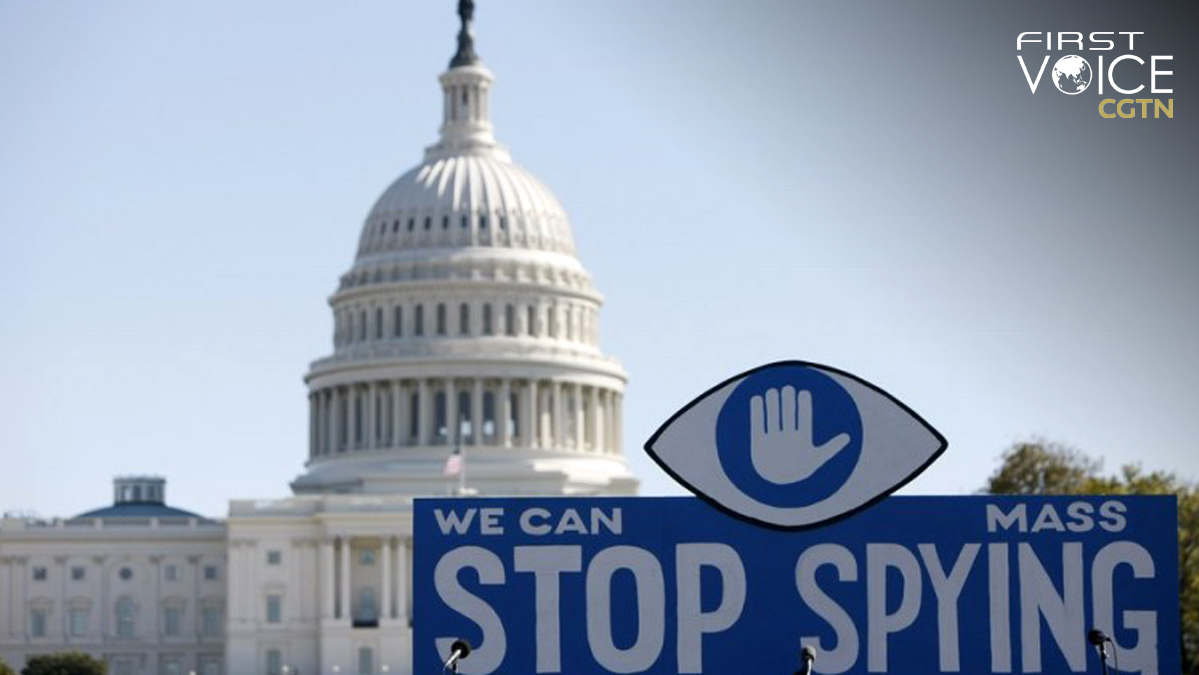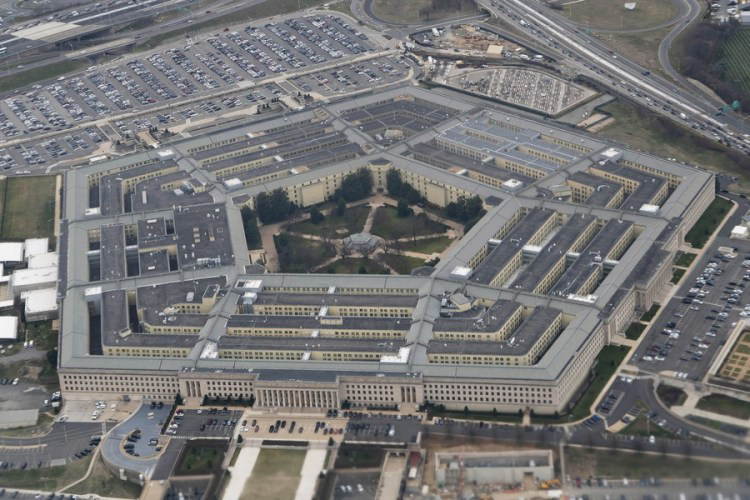
Editor's note: CGTN's First Voice provides instant commentary on breaking stories. The column clarifies emerging issues and better defines the news agenda, offering a Chinese perspective on the latest global events. This First Voice article is written by CGTN Special Commentator Anthony Moretti, an associate professor in the Department of Communication and Organizational Leadership at Robert Morris University. The article reflects the author's opinions and not necessarily the views of CGTN.
Chances are the White House will have little to say about a new report that claims the United States conducts a seemingly endless number of cyberattacks across the globe. A refusal to admit the obvious is regularly on display in Washington, so we should not anticipate any public denials in the coming days.
The report was issued by China's National Computer Virus Emergency Response Center (NCVERC) and the internet security company 360, which is also located in China. The report suggests that "an empire of hackers" exists within the Central Intelligence Agency, and those "hackers" undertake many of the attacks. Among the most eye-opening assertions is that the U.S. has used cyberattacks in an effort to advance regime change in select countries.
U.S. involvement in gumming up foreign elections is not news, although most Americans would probably like to ignore that their government is engaged in such activities. The influential magazine Foreign Affairs reported in 2020 that "from Kyiv to Brussels to London, government officials ... assume the Central Intelligence Agency frequently interferes in elections abroad."
And just how frequent is "frequently?"
One university professor in the U.S. believes that the CIA interfered in at least 81 foreign elections between 1946 and 2000. The Los Angeles Times reminded its readers that number "doesn't include military coups and regime change efforts following the election of candidates the U.S. didn't like, notably those in Iran, Guatemala and Chile. Nor does it include general assistance with the electoral process, such as election monitoring."
Americans from all corners of the country and across the political spectrum are still hotly debating whether Russia played any role in influencing the outcome of the 2016 presidential election, one in which Donald Trump defeated Hillary Clinton. But you will have to search far and wide to find anyone willing to talk about the constant efforts undertaken by the U.S. to put (or keep) friends in power across the globe.

The Pentagon seen from an airplane over Washington D.C., the United States, February 19, 2020. /Xinhua
The Pentagon seen from an airplane over Washington D.C., the United States, February 19, 2020. /Xinhua
Returning to the report issued on May 4 in China, readers learn that infrastructure facilities, research institutes and technology companies were among the most prominent locations of the alleged American-led cyberattacks. The study added that the United States has increased the amount and intensity of the attacks since 2015. Chinese officials are well aware of the sophisticated efforts; just last year, the NCVERC and 360 concluded that as many as 10,000 separate attacks had been directed at China in recent years and led to 140 GB of important data being "stolen."
U.S. President Joe Biden often asserts that China and Russia are eager to find any vulnerability it can exploit in the U.S. and the West. Just two months ago, Biden administration announced it was expecting businesses large and small to do more to protect their companies and the nation from cyberattacks. The clear message: Washington's heavy hand of regulation will be on display if the corporations do not do what the president wants. And we know the answer to the question of whether that same heavy hand will be raised to ask about America's record of causing disruptions. Not a chance.
The Center for Strategic and International Studies (CSIS) examined what it described as "significant" cyberattacks that took place around the world since 2006. Inexplicably, the CSIS does not accuse the U.S. of instigating any of the attacks. As you might expect, the finger of blame is pointed many times at China, which is accused of seeking to undermine various locations throughout North America, Europe and Southeast Asia. The CSIS also recently hosted the director of the cybersecurity directorate at the National Security Agency. Rob Joyce spoke about the threats to America because of cyberattacks, AI and more. But never once was he asked about attacks linked to the U.S.
No matter what you or I think about them, cyberattacks are part of the arsenal used by countries to damage, even if just for a day or two, the normal flow of business or research. Yes, the United States should publicly announce when it has been hit by such an attack. Likewise, it should provide credible evidence that points to the nation that sponsored it. However, the silence from the political elites in admitting that America is aggressive in carrying out its own attacks is foolish. They know what the government does. The media elite know what the government does. Any private citizen who spends even a cursory amount of time looking at the workings of their government knows what that government does.
The joint NCVERC and 360 report makes the refusal to talk about something that is common knowledge all the more exasperating.
(If you want to contribute and have specific expertise, please contact us at opinions@cgtn.com. Follow @thouse_opinions on Twitter to discover the latest commentaries in the CGTN Opinion Section.)